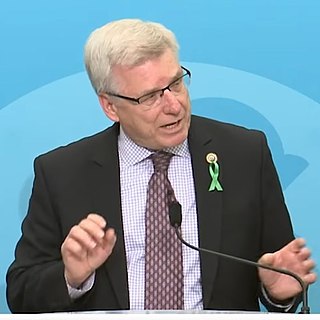A Quote by Carl Jung
If we feel our way into the human secrets of the sick person, the madness also reveals its system, and we recognize in the mental illness merely an exceptional reaction to emotional problems which are not strange to us. --"The Content of the Psychoses
Related Quotes
When our bodies are sick and people extend their sympathy, bring us soup, offer up solutions. When our minds are sick, people tend to shy away from you, be afraid, or call you outright crazy. I'm fascinated by the way society and individuals view mental illness, and most of my shorts comment on that.
I think mental illness or madness can be an escape also. People don't develop a mental illness because they are in the happiest of situations, usually. One doctor observed that it was rare when people were rich to become schizophrenic. If they were poor or didn't have too much money, then it was more likely.
Having been hit by drug addiction, knowing how many are hit by it and what a big problem it is in our neighborhoods and our culture, I feel a responsibility to do something. I can see what's wrong with the system - that we have to recognize mental illness as we do cancer or broken bones - and how we need to make it better.
The constitution of madness as a mental illness, at the end of the eighteenth century, affords the evidence of a broken dialogue, posits the separation as already effected, and thrusts into oblivion all those stammered, imperfect words without fixed syntax in which the exchange between madness and reason was made. The language of psychiatry, which is a monologue of reason about madness, has been established only on the basis of such a silence.
Through compassion it is possible to recognize that the craving for love that people feel resides also in our own hearts, that the cruelty the world knows all too well is also rooted in our own impulses. Through compassion we also sense our hope for forgiveness in our friends' eyes and our hatred in their bitter mouths. When they kill, we know that we could have done it; when they give life, we know that we can do the same. For a compassionate person nothing human is alien: no joy and no sorrow, no way of living and no way of dying.
The very term ['mental disease'] is nonsensical, a semantic mistake. The two words cannot go together except metaphorically; you can no more have a mental 'disease' than you can have a purple idea or a wise space". Similarly, there can no more be a "mental illness" than there can be a "moral illness." The words "mental" and "illness" do not go together logically. Mental "illness" does not exist, and neither does mental "health." These terms indicate only approval or disapproval of some aspect of a person's mentality (thinking, emotions, or behavior).
Self-awareness is a trait that not only makes us human but also paradoxically makes us want to be more than merely human. As I said in my BBC Reith Lectures, “Science tells us we are merely beasts, but we don’t feel like that. We feel like angels trapped inside the bodies of beasts, forever craving transcendence
It seems to me that the idea of a personal God is an anthropological concept which I cannot take seriously. I feel also not able to imagine some will or goal outside the human sphere. My views are near those of Spinoza: admiration for the beauty of and belief in the logical simplicity of the order which we can grasp humbly and only imperfectly. I believe that we have to content ourselves with our imperfect knowledge and understanding and treat values and moral obligations as a purely human problem-the most important of all human problems.
Madness, provided it comes as the gift of heaven, is the channel by which we receive the greatest blessings... the men of old who gave things their names saw no disgrace or reproach in madness; otherwise they would not have connected it with the name of the noblest of arts, the art of discerning the future, and called it the manic art... So, according to the evidence provided by our ancestors, madness is a nobler thing than sober sense... madness comes from God, whereas sober sense is merely human.





































